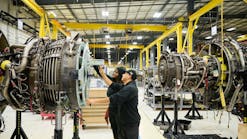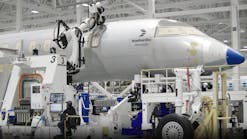FlightView Survey Offers PR Insights As Airlines Struggle With Customer Satisfaction
Airlines worldwide are missing a major opportunity to strengthen customer loyalty and service, and reduce operational costs - according to a new, gate-side survey by FlightView, 78 percent of travelers are often frustrated by the lack of timely, accurate information, particularly when flights are delayed. The survey, which was conducted at four major U.S. airports - Boston's Logan International Airport, Denver International Airport, San Diego International Airport and Myrtle Beach International Airport - found that traveler frustration skyrockets when they are left in the dark around flight delays. Of the travelers surveyed, 70 percent expect updates on flight changes in real time - and today, few airlines are making this information easily accessible. When flights are delayed, 45 percent of travelers surveyed said their biggest frustration was not knowing where their airplane was or when it would arrive. Another 34 percent said their biggest frustration was not receiving fast enough or accurate updates on new departure times. In both cases, the lack of information creates a more stressful travel experience. "Most travelers understand that flight delays are part of flying - and often unavoidable," said Mike Benjamin, CEO of FlightView, in a news release. "But when airlines fail to proactively communicate with travelers about the status of their flights, frustration levels rise and equity is lost."
The problem is magnified when travelers are sitting at the gate waiting to take off. More than 60 percent of travelers report their emotional level as frustrated or very frustrated when they're already at the gate and they learn that their flight has been delayed. Beyond declining customer satisfaction, failing to provide proactive at-the-gate information could cost airlines financially.
According to FlightView, when travelers learn that their flights have been delayed while at the gate and they can't get enough information on a new take-off time:
62 percent are frustrated or very frustrated 40 percent said they consider avoiding that airline the next time they fly 22 percent say it's partly why they don't like flying and may avoid flying, if possible, the next time they travel
Another major at-the-gate frustration for travelers is conflicting flight information. A full 80 percent of travelers have received conflicting information from different sources - like gate displays, mobile apps, websites and gate agents. Nearly 20 percent say it happens on a regular basis.
"When an airline's website shows different information than the gate displays, travelers panic," said Benjamin. "Unfortunately, conflicting flight information is a real problem for U.S. airlines. The solution is having a single source of information feeding all airline displays, websites and mobile services."
When travelers were asked which source they tend to trust the most:
50 percent said airline gate agents – which puts a major burden on airline employees 30 percent said gate displays 20 percent were evenly torn between mobile flight-tracking apps and airline websites
For budget-conscious airlines, the fact the so many travelers trust gate agents more than displays presents a critical resource problem. The issue, according to FlightView, lies within the gate displays, which are often not equipped with enough information to keep a traveler informed.
"In the next year, we expect to see a major shift in the kind of information airlines provide to travelers on gate displays," said Benjamin. "Estimated departure times are no longer enough. Passengers want to know where their plane is located, when it's expected to arrive, when they should plan to board, when it's scheduled to take off and when it's expected to land. The good news for airlines and airports is that once this information is incorporated into gate displays, the customer service demand placed on gate agents will decrease, allowing them to focus on other priorities."
For airlines interested in improving customer satisfaction, the message is clear: 70 percent of travelers said the number one improvement they'd like to see from airlines is proactive updates that are more comprehensive on the status of delayed flights.





